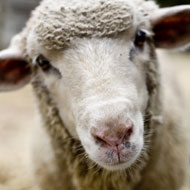
NADIS publish latest disease forecast
A warm, wet summer has increased the risk of sheep and cattle contracting parasites, according to the latest disease forecast from the National Animal Disease Information Service (NADIS).
Forecasters say that sheep are at risk from liver fluke, worms and blowfly strike, while cattle at heightened risk of lungworm and parasitic gastro-enteritis (PGE).
NADIS advise monitoring lamb growth and only worming lambs that are failing to meet expected growth rates. They add that lambs should be moved to silage or hay aftermaths not grazed by ewes and lambs, and preferably to pasture not grazed by lambs the previous year.
In cattle, farmers are advised to monitor herds closely for symptoms of lungworm, looking for signs of coughing, increased respiratory rate and difficulty in breathing. It adds that affected animals should be removed from infected pasture and prompt anthelmintic treatment is essential.
NADIS states that incidents of PGE are most likely to occur from mid-July onwards, peaking during August/September. As with sheep, farmers are advised to move cattle to safe grazing not previously grazed by calves and preferably to pasture not grazed by calves last year.
For calves grazing permanent pasture, the disease can be prevented by TST based on live weight gain, or anthelmintic treatment based upon worm FEC. If clinical disease occurs, NADIS recommends immediate treatment of all cattle in the group, when first signs of acute profuse diarrhoea appear.
To more information and to view the full NADIS parasite forecast vist nadis.org.uk.



 The BSAVA has opened submissions for the BSAVA Clinical Research Abstracts 2026.
The BSAVA has opened submissions for the BSAVA Clinical Research Abstracts 2026.